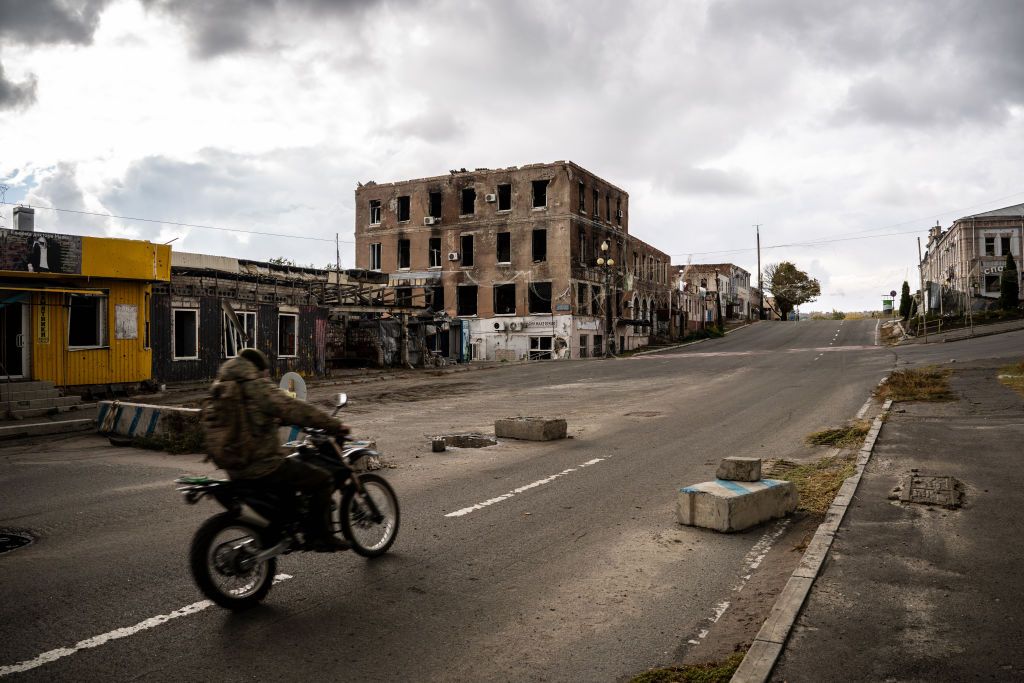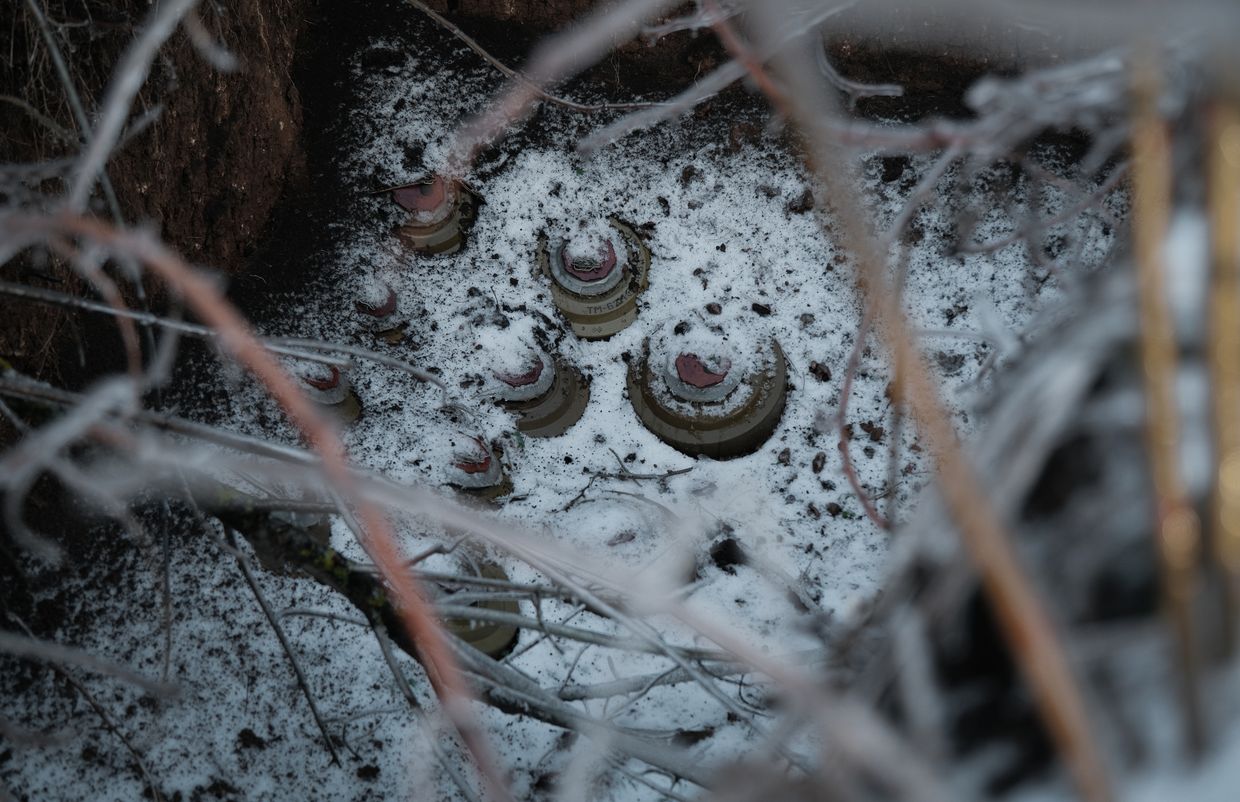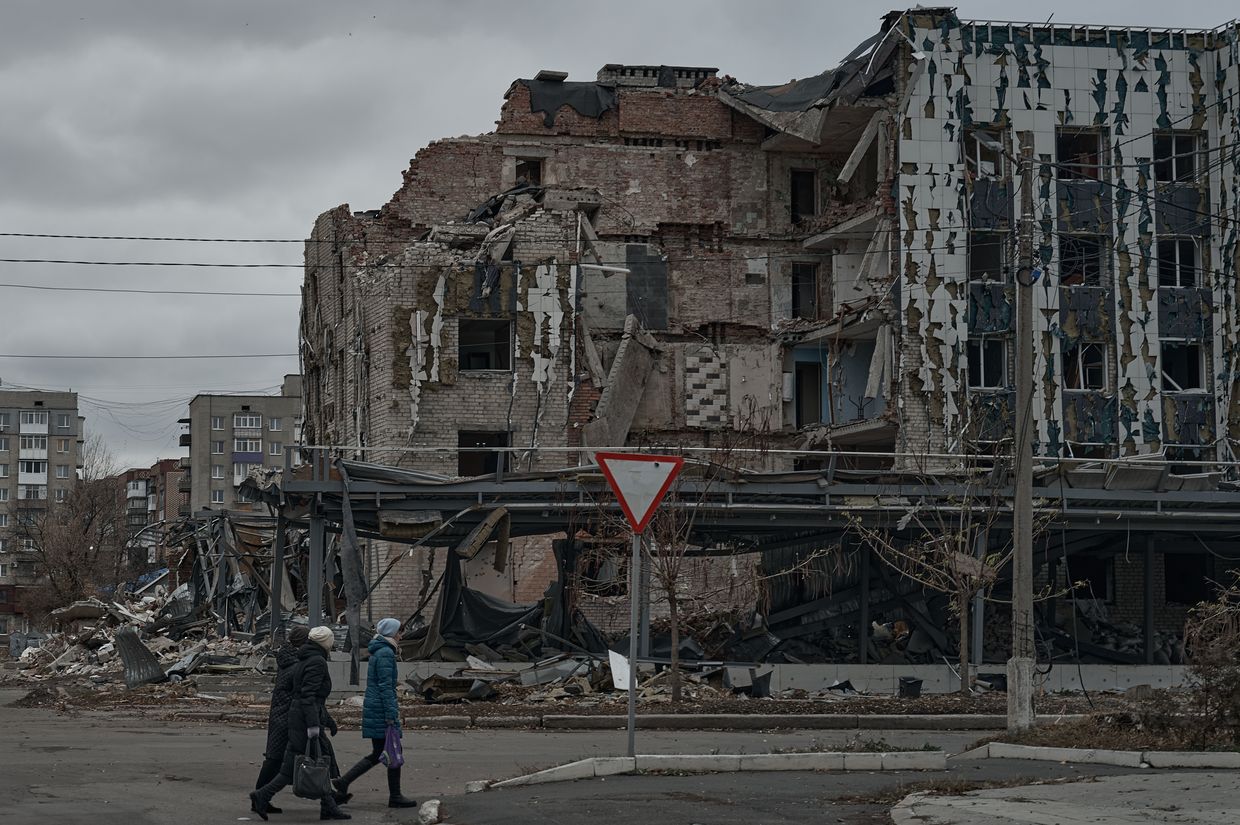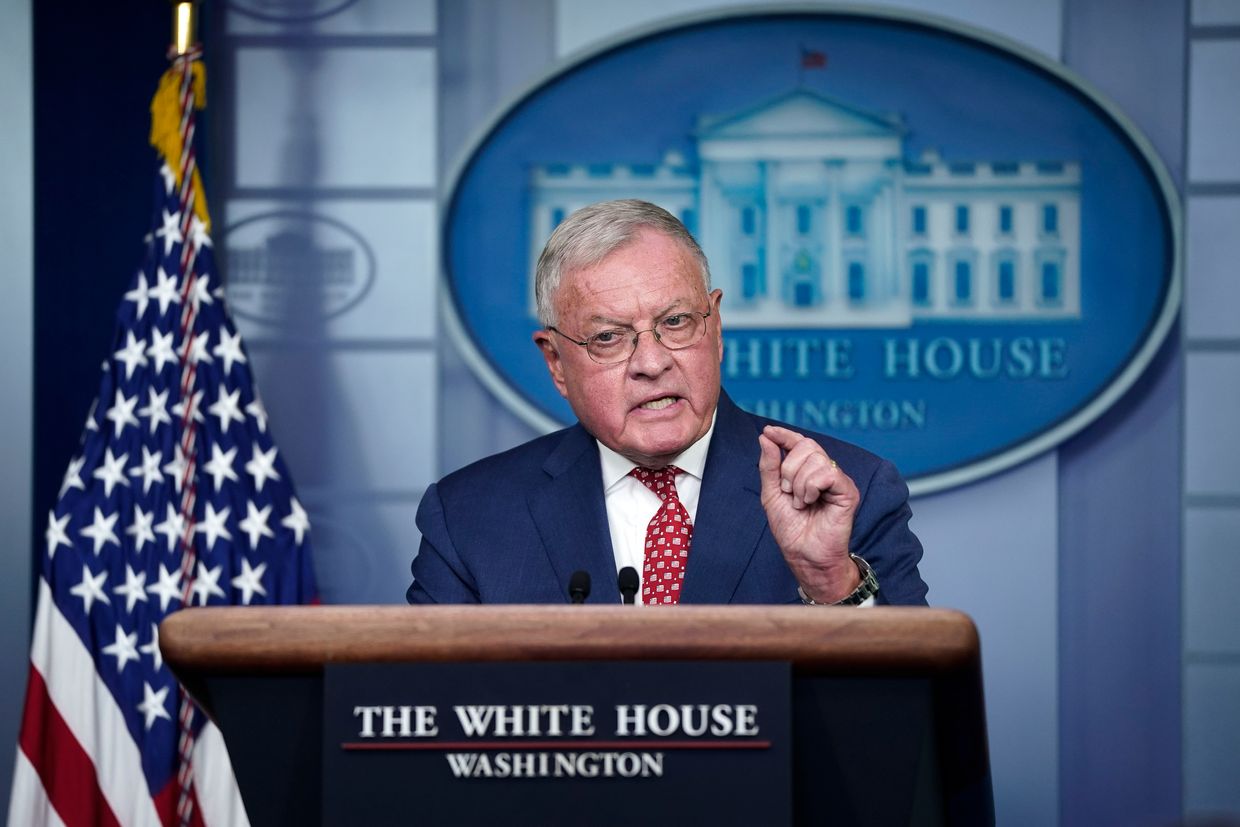U.S. political commentator Tucker Carlson, a controversial figure who holds influence by having Donald Trump's ear, has slammed the outgoing administration's decision to provide Kyiv with landmines, warning the weaponry Ukraine claims it needs to defend itself from Russia's invasion will only "kill innocents."
"There's no justification for using anti-personnel mines (APLs) in this conflict, which can't hope to be solved," Carlson said in an interview with the Redacted podcast on Nov. 24.
“The only effect of that move is to kill innocents, period. That's it, that's the only effect - and they know that. And so they're doing it anyway because killing is the point,” he added.
It's the latest episode in which Carlson, a top ally of U.S. President-elect Trump, has criticized outgoing President Joe Biden's decision to provide Kyiv with additional weapons before the end of its term.
Carlson's comments come nearly three years into Russia's full-scale invasion, a war in which Ukraine relies on support from the U.S. and other Western allies to defend itself.
While the use of landmines in conflicts is controversial, the weaponry has been widely used by both sides in the war. The outgoing administration of Joe Biden and Ukrainian officials insist they are necessary to help Kyiv to defend itself.
Dmytro Kuleba, Ukraine's former foreign minister, told the BBC earlier this month that he understands the "moral ramifications for human rights defenders" regarding APLs posing a risk to civilians.
"But we're fighting a war against a vicious enemy, and we must have the right to use everything we need within the realm of international law to defend ourselves," Kuleba added.
Biden, on Nov. 19 authorized the transfer of APLs for Ukraine in response to Russia's grinding offensive advancing in the eastern Donetsk Oblast, which has gathered pace in recent weeks.
The controversial move comes after another major policy shift, in which the Biden administration allowed the use of U.S.-made ATACMS missiles deep inside Russian territory.
Earlier in June 2022, the White House announced the U.S. would no longer produce or transfer the mines, aiming "to curtail the use of APLs worldwide."
But in explaining the change in policy, and the decision to provide them to Ukraine, U.S. Defense Secretary Lloyd Austin told CNN that "the Russians have been so unsuccessful in the way that they have been fighting, they've kind of changed their tactics a bit."
Thus, Ukraine needs "things that can help slow down that effort," Austin added.
"Landmines could help minimize Ukrainian casualties by reducing the need for soldiers to enter certain battle zones," Jean-Christophe Noel, a research fellow on Security and International Relations at the French Institute of International Relations (IFRI), told the Kyiv Independent.
"By placing mines in key areas, you can block enemy movement. It won't stop Russian troops entirely, but it can slow them down. Moreover, in case of a front-line crisis, mines will delay Russian forces, giving Ukraine time to react."

What are anti-personnel landmines?
An APL is a small explosive device made out of plastic or metal that militaries usually use to hinder advancing enemy troops or vehicles, and protect military positions. Combatants often bury them in the ground or conceal them in buildings.
APLs come in different types, each serving a specific purpose. Generally, they explode when a person steps on them, touches them, or comes within a certain proximity.
The range of damage and functionality varies depending on the type and size of the landmine. According to Gerald C. Cauderay, a former International Committee of the Red Cross (ICRC) delegate, blast mines typically affect an area within one to two meters.

Other types include fragmentation mines, which are designed to injure by throwing shrapnel into the air in a wide radius.
U.S. officials are keeping quiet about the specific type of mines that will be sent to Ukraine.
"The anti-personnel mines treaty, established decades ago, bans most landmines, allowing only controlled mines like the Claymore, which detonates via controller (remotely) and self-deactivates after a set time," Mick Ryan, a senior fellow for military studies at the Lowy Institute and the Center for Strategic and International Studies (CSIS), told the Kyiv Independent.
"These may be the type the U.S. is supplying to Ukraine," he added.
Stay warm with Ukrainian traditions this winter. Shop our seasonal merch collection.
Is it ethical for Ukraine to defend itself with landmines?
Both Ukrainian and Russian forces have used landmines heavily during the war.
"Ukraine is now the most mined country in the world, with potentially 23% of its land at risk of contamination with landmines and unexploded ordinances," the United Nations Development Programme (UNDP) said in a report this month.
Although international law does not prohibit the use of APLs, over 160 countries signed the Ottawa Treaty in 1997 — the Anti-Personnel Mine Ban Convention — which bans the creation, production, storage, and use of landmines.
Ukraine is a signatory of this treaty, but neither the U.S. nor Russia has signed it.
Human rights activists and international organizations are warning about the risks posed by APLs in Ukraine to civilians now, and in the future.


"President Biden's decision to transfer anti-personnel landmines risks civilian lives and sets back international efforts to eradicate these indiscriminate weapons," said Mary Wareham, Human Rights Watch (HRW) director.
The International Committee of the Red Cross (ICRC), an independent humanitarian organization, is concerned about the indiscriminate impact of landmines on civilians who are not part of the fighting.
"We (the ICRC) can see that the rhetoric regarding the allowance of weapons has changed in the war between Ukraine and Russia because there are an increasing number of Russian attacks on civilian infrastructure, including electricity, heating, and water systems, worsening people's living conditions," Patrick Griffiths, a Red Cross spokesperson in Ukraine, told the Kyiv Independent.
"However, the ICRC does call to respect the international treaties regarding the use of weapons. It's important to ensure that any use stays within the international humanitarian law," Griffiths added.

Carlson calls Zelensky a dictator, deepening concerns about Trump
Trump, who is to take over as president in January 2025, has not himself commented on the provision of APLs to Ukraine. But he has pledged to swiftly end the war, hinting that Ukraine could have to make some concessions.
Carlson went on to describe President Volodymyr Zelensky as undemocratic and his country's fight for survival as a nation as not worth supporting.
"I don't think it's a matter of defending democracy," Carlson said.

"The president of Ukraine is not elected. He's a dictator. He literally passed his term and kept serving," Carlson said.
Holding national elections in Ukraine is not permitted under martial law, a measure that was taken as a result of Russia's full-scale invasion launched in early 2022.
Carlson's comments are likely to deepen concern in Kyiv that Trump could cut U.S. military support for Ukraine in a bid to pressure it into concessions.














